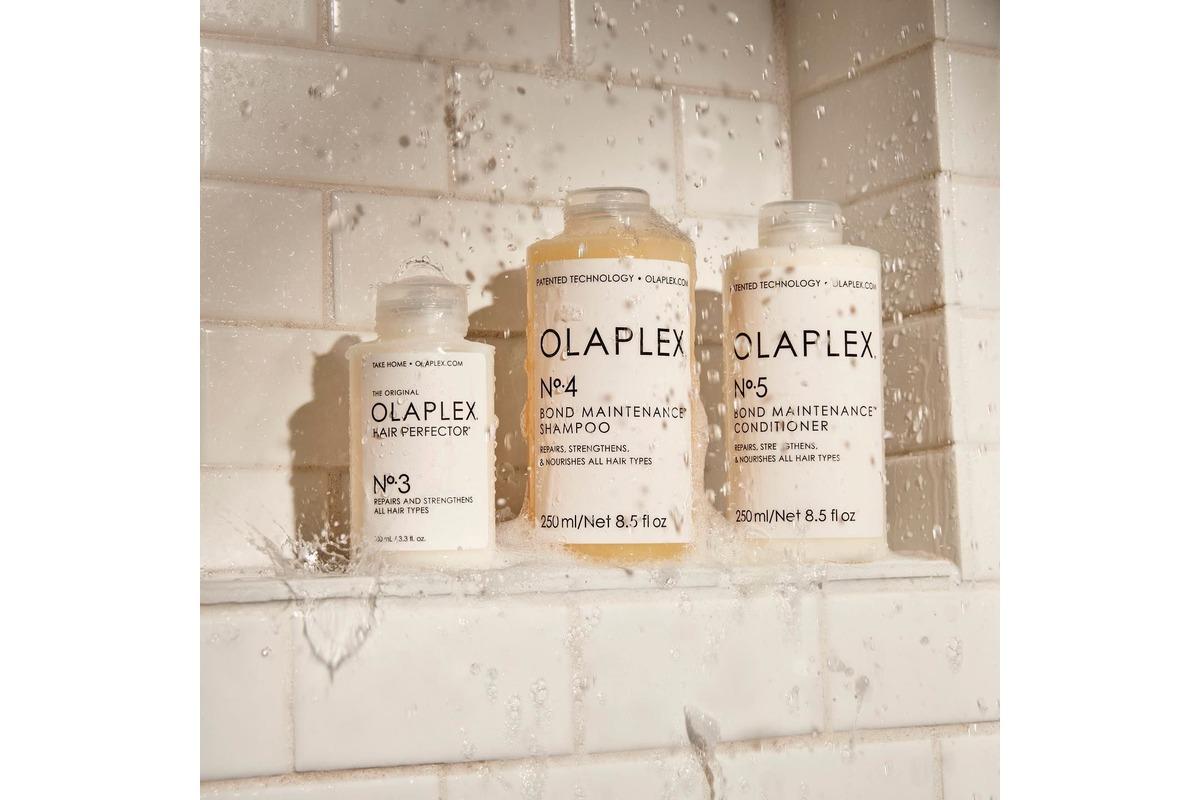Does Olaplex Really Cause Hair Loss? The Truth Behind the Lawsuit
Updated May 30 2023, 5:02 p.m. ET
When Olaplex launched in 2014, people on Instagram and Facebook raved about this miracle in a bottle that completely transformed their hair. With its patented technology designed to reconnect broken hair bonds, a new category of bond repair hair care products took off almost overnight, and even skeptics became believers.
That all changed in 2022 when content creators suddenly turned on Oleplex, accusing the products of containing a chemical called lilial that was banned in the EU due to reproductive toxicity — and also for causing dryness, damage, breakage, and even hair loss.
So, what's the truth behind this Olaplex lawsuit? And should you rush to dump out the bottles in your shower? Let's find out.
What is the Olaplex lawsuit?
A lawsuit, filed in the U.S. District Court Central District of California, alleges that Olaplex products contain allergens and irritants that caused nearly 30 women to suffer from hair loss as well as dry, brittle hair.
The women are suing for negligence and false advertising after Olaplex's marketing materials falsely claimed that its products "restore damaged and compromised hair" while creating "healthy, beautiful, shiny, touchable hair" and that results have been "proven by science."
The plaintiffs claim the Olaplex products contain lilial — a known sensitizer and allergen linked to infertility — which has caused their hair to become "dry, brittle, frizzy and dull."
The lawsuit seeks to hold Olaplex Holdings Inc. accountable for $75,000 in damages after plaintiffs alleged that lilial had been removed from the product's ingredient list, but not from the product itself.
What does Olaplex say?
Olaplex denied the allegations and responded by posting results from a third-party lab test to demonstrate the safety and efficacy of its products.
According to the study, Olaplex hair products went through human repeat insult patch tests (HRIPT), a standard evaluation for personal care products that tests for irritation, inflammation, and sensitivity. If a product passes the test, that means it did not cause sensitivity in or inflame the skin or hair follicle, which causes hair loss.
To further reinforce their point, Olaplex's CEO, JuE Wong, shared a statement on Twitter to help calm the nerves of customers who've been "mentally stressed from the inaccurate narrative on the lilial phase-out" and to assure customers that the amount of lilial that's present in Olaplex is "not enough to directly impact fertility."
And in February 2023, Wong released a statement asserting that Olaplex hair products "do not cause hair loss or breakage," and that they are "safe and effective," according to a representative for the brad.
She also stated that the brand "publicly released test results from independent third-party laboratories, going above and beyond industry standards," and she denied that any hair breakage or hair loss could have to do with Olaplex.
"We are prepared to vigorously defend our Company, our brand, and our products against these baseless accusations," Wong stated.
What's the current state of the lawsuit?
As of May 2023, the court has yet to rule on these motions or set a trial date. Meanwhile, Olaplex continues to deny these allegations, with a company spokesperson stating there's "no evidence that Olaplex products cause hair loss of hair breakage. We believe in the safety and efficacy of our products which are thoroughly tested in-house by independent third-party laboratories."
The plaintiffs are simply seeking to be reimbursed for attorney's fees, monetary damages, and trial by jury.
What to do if you've been negatively impacted by Olaplex:
If you believe your hair's been damaged or you've been harmed by Olaplex products, you should consult with a lawyer.
This article was updated to include a statement from JuE Wong, and to clarify that the lawsuit was not a class-action suit.


